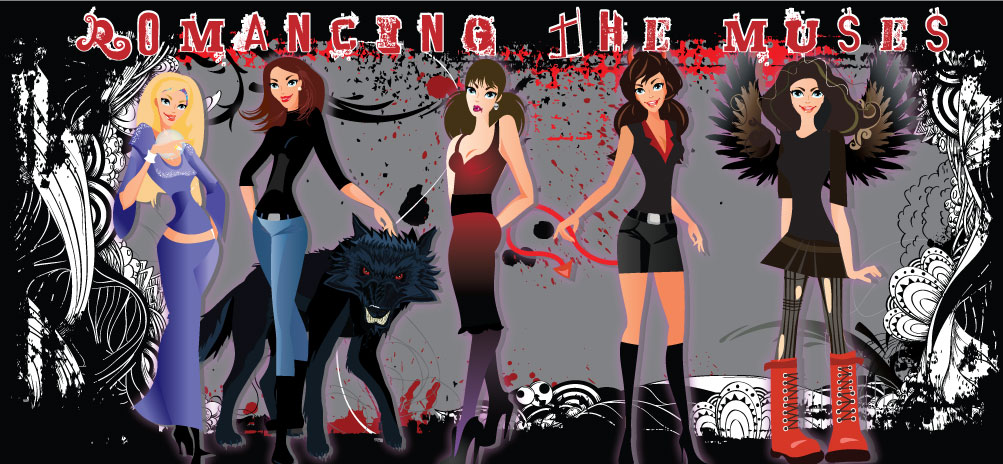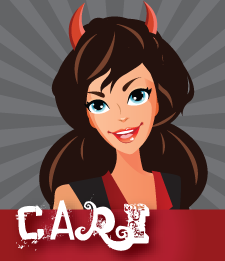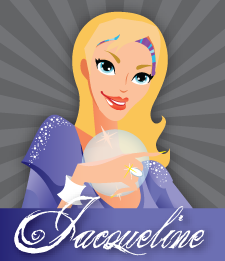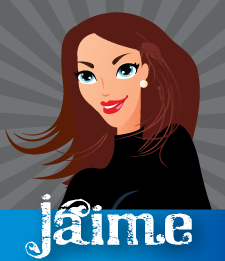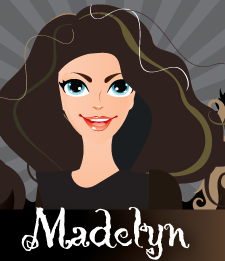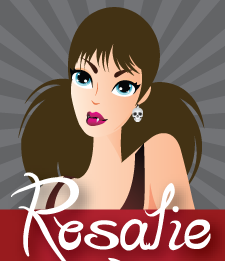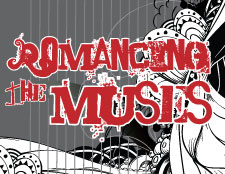Once you finish you book, are contracted, and have a release date, it's time to enter into that hazy world of promotion. For a new author, the task can be very daunting. Not only are there venues such as Twitter and Facebook to introduce yourself (in which you have to be extremely careful to avoid a hard sell), but there are also various other methods to get your name out there. It can become confusing, especially when you're doing all that you can and sales don't seem to be climbing.
However, I've found there is one surefire way to gain recognition -- book bloggers. They are people who, at heart, enjoy reading great stories. Most take review requests and are more than willing to have you on the blog to guest host, answer questions, or provide a giveaway to their followers. Since the blogging community is very close, it's also a great way to spread the word about your work. A solid following will ensure that more people give your work a shot, which is an author's heaven when they are brand new and need to develop a name for themselves.
Another great thing is that book bloggers are also on Twitter, Facebook, and Goodreads. This allows them to spread the word even further. All it takes is one enthralling story to ensure they will be talking about your recent work, how much they enjoyed it, and recommending it to all their friends. I've found a majority of the book bloggers I submit my material to simply by doing some research. Look for those who enjoy your genre, are open to requests, and be sure to read their reviews. The key is to find people who have a grasp for reviewing, a solid handle on their audience, and a good reputation.
Much like searching for a place to submit your work, be sure you know who you're sending your book to assist you in promoting your story. Things like their number of followers and the layout of the site is important, but secondary to the primary objective -- to obtain a good review (that positive or negative, weighs the pros and the cons). Do your research before release, find bloggers who interest you, and start setting up a schedule. Once that's done, be sure to check in daily when you visit, say hello to those who stop by, and before long the effort will pay off.
In a saturated market, it's always best to find your own little niche. All it takes is a posse of devoted book lovers to make that happen.
Wednesday, January 19, 2011
Tuesday, January 18, 2011
Not all pirates are sexy!
I was just getting caught up on my favorite author blogs and it made
me sad to read so many of them having problems with
piracy of their work.
Internet piracy is a growing disease, spreading
 as quickly as a plague! The end result for ebooks
as quickly as a plague! The end result for ebooks
is its robbing the readers from books that would
have been written and from the authors it is
taking not only income but the drive that makes
them sit down and write the stories in the first
place.
This theft affects all writers, whether they are
with smaller presses or the large ones. Stephanie
Meyer was affected by this tragedy when a partial
copy of the 5th book in her twilight saga was posted
on line - that book was never finished, or if it was
no one ever read it. I personally would have loved
to read the book that was written in a different
perspective than Bella's ... but now I won't get to
because someone decided it was their right to post
whatever they wanted on the internet without thinking
of the consequences.
I have several author friends that are constantly having
to put their writing on hold to issue endless requests to
have their work taken down from illegal sites.
Ebook piracy affects more than just the author, the publisher
loses revenue as well and the result of that is they publish
fewer books than they could have.
Someone recently commented to me that if your book is
being pirated than it must be a fantastic book because if
it wasn't no one would be passing it along ... this person
is still dangling from their toes from the tree in my backyard
(inside my mind at least). Whether the readers think your
book is the most amazing, riveting story ever is not the
point. To the author that has sat there writing, plotting,
proofing, editing and working their keyboard until their wrists
hurt any piracy is an insult that you don't ever recover from.
There are sites that will help you get all your work taken down
- for a fee. Which is wonderful that someone is out there to help,
but if you're already losing royalties while paying for promotion -
is this really the way??
We are in a time where you can post something in the window
of your own computer while sitting at home and in less than
twenty-four hours it's being read world wide - so why can't
we find a way to stop the illegal downloads of our work?
Do we need to co-ordinate one day where every single person
on all of our networking lists posts the same thing to get some
awareness going? It could happen with enough planning.
One day on the calendar where everyone helps bring awareness
to as many as they can reach around the world ... would this
stop a small percentage? I really don't know but I do know
that something has to be done.
Help spread the word and join the fight!
me sad to read so many of them having problems with
piracy of their work.
Internet piracy is a growing disease, spreading
 as quickly as a plague! The end result for ebooks
as quickly as a plague! The end result for ebooksis its robbing the readers from books that would
have been written and from the authors it is
taking not only income but the drive that makes
them sit down and write the stories in the first
place.
This theft affects all writers, whether they are
with smaller presses or the large ones. Stephanie
Meyer was affected by this tragedy when a partial
copy of the 5th book in her twilight saga was posted
on line - that book was never finished, or if it was
no one ever read it. I personally would have loved
to read the book that was written in a different
perspective than Bella's ... but now I won't get to
because someone decided it was their right to post
whatever they wanted on the internet without thinking
of the consequences.
I have several author friends that are constantly having
to put their writing on hold to issue endless requests to
have their work taken down from illegal sites.
Ebook piracy affects more than just the author, the publisher
loses revenue as well and the result of that is they publish
fewer books than they could have.
Someone recently commented to me that if your book is
being pirated than it must be a fantastic book because if
it wasn't no one would be passing it along ... this person
is still dangling from their toes from the tree in my backyard
(inside my mind at least). Whether the readers think your
book is the most amazing, riveting story ever is not the
point. To the author that has sat there writing, plotting,
proofing, editing and working their keyboard until their wrists
hurt any piracy is an insult that you don't ever recover from.
There are sites that will help you get all your work taken down
- for a fee. Which is wonderful that someone is out there to help,
but if you're already losing royalties while paying for promotion -
is this really the way??
We are in a time where you can post something in the window
of your own computer while sitting at home and in less than
twenty-four hours it's being read world wide - so why can't
we find a way to stop the illegal downloads of our work?
Do we need to co-ordinate one day where every single person
on all of our networking lists posts the same thing to get some
awareness going? It could happen with enough planning.
One day on the calendar where everyone helps bring awareness
to as many as they can reach around the world ... would this
stop a small percentage? I really don't know but I do know
that something has to be done.
Help spread the word and join the fight!
Sexy pirates....
not so sexy!
Monday, January 17, 2011
Jane! Stop this crazy thing!
To outline, or not to outline: that is the question:
Whether 'tis nobler in the mind to suffer
The slings and arrows of outrageous plotlines,
Or to take notes against a sea of ideas,
And by opposing catalogue them?
Many authors feel outlines are too restrictive of the creative process. Other writers feel lost if they don’t have an idea of where the story is going. Personally, I fall in the latter category. I’ve tried pantsing it (“writing by the seat of one’s pants”), but I’ll get a few chapters in before feeling anxious and lost.
We’ve all heard the grass is always greener; I have several friends who have absolutely no clue where the story is headed once they begin writing. They have only a few characters, a concept, and an open road of possibilities. Sometimes, when I’m particularly bored with an idea or stumbling over a few chapters, I envy that quality. And while I know how simple it would be to change things up, my own style is such that once I have an idea of where I want the story to go, I’m rather immovable. That being said, I have found that doing the opposite in terms of preparing for a manuscript helps in times of writer’s block.
Since I am an outliner, my views on this process are biased. I will say I became an outliner as a result of pantsing it when I was younger. I’d find myself in holes so deep they ran to China. There is something thrilling in that, I admit. Knowing the whole thing could fall apart gave it a sense of urgency; daring my creativity to do something surprising while maintaining integrity and keeping readers hooked.
Outlining has been a lifesaver for me. I started chronicling the direction my WIPs were to take when I feared forgetting something I had planned for the road ahead (from things as small as a funny to huge twists with particular indicators). This transformed into detailed chapter-by-chapter synopses from start to end, or at least an overall view of where the project was headed. I’ve never felt confined, as I am also in charge of the outline and can (and have!) changed it based on something that turned up unexpected in the actual manuscript. For example: my most recently-completed MS had a rigid outline, but I was pleasantly surprised at how the original concept matured during the writing stage. As a result, this particular story has since developed a life of its own, and demands at least four additional books to give the plotline a sense of completion.
The outlining process is a crucial stage for me, but there is no right or wrong way to start writing. Are you a pantser or an outliner? Have you tried switching it up? What was the result?
Whether 'tis nobler in the mind to suffer
The slings and arrows of outrageous plotlines,
Or to take notes against a sea of ideas,
And by opposing catalogue them?
Many authors feel outlines are too restrictive of the creative process. Other writers feel lost if they don’t have an idea of where the story is going. Personally, I fall in the latter category. I’ve tried pantsing it (“writing by the seat of one’s pants”), but I’ll get a few chapters in before feeling anxious and lost.
We’ve all heard the grass is always greener; I have several friends who have absolutely no clue where the story is headed once they begin writing. They have only a few characters, a concept, and an open road of possibilities. Sometimes, when I’m particularly bored with an idea or stumbling over a few chapters, I envy that quality. And while I know how simple it would be to change things up, my own style is such that once I have an idea of where I want the story to go, I’m rather immovable. That being said, I have found that doing the opposite in terms of preparing for a manuscript helps in times of writer’s block.
Since I am an outliner, my views on this process are biased. I will say I became an outliner as a result of pantsing it when I was younger. I’d find myself in holes so deep they ran to China. There is something thrilling in that, I admit. Knowing the whole thing could fall apart gave it a sense of urgency; daring my creativity to do something surprising while maintaining integrity and keeping readers hooked.
Outlining has been a lifesaver for me. I started chronicling the direction my WIPs were to take when I feared forgetting something I had planned for the road ahead (from things as small as a funny to huge twists with particular indicators). This transformed into detailed chapter-by-chapter synopses from start to end, or at least an overall view of where the project was headed. I’ve never felt confined, as I am also in charge of the outline and can (and have!) changed it based on something that turned up unexpected in the actual manuscript. For example: my most recently-completed MS had a rigid outline, but I was pleasantly surprised at how the original concept matured during the writing stage. As a result, this particular story has since developed a life of its own, and demands at least four additional books to give the plotline a sense of completion.
The outlining process is a crucial stage for me, but there is no right or wrong way to start writing. Are you a pantser or an outliner? Have you tried switching it up? What was the result?
Thursday, January 13, 2011
New Year's Resolutions
Every year I come up with a few resolutions. Sometimes they're personal (I need to exercise more) and sometimes they are work related. This year will be the year of social media and name branding. At least for me.
What is name branding, you ask? Like any other commodity, your name is your brand and many readers, if they like your work, will buy your next book just because your name is featured on the cover. I didn't realize the importance of this until after my first release, so for those aspiring writers, I say start now.
1. Get a website or blog. I know the website can be an expensive expense, especially if you don't even have a contract on the table so I would suggest starting with a blog. Set one up. But don't just stop there. Actually use it. Blog about the trial and tribulations of an aspiring author for example, anything to draw readers.
2. Then Tweet about it. Facebook it. Get your name out there. But you have to be careful. Don't flood the market or you can turn people off, which you don't want to do.
3. Join author groups. Not only is this a good place to meet other authors and learn the trade, authors are in affect readers. You can make some wonderful friends who will grown to be your greatest companions.
Now for me, I have done all the above but unlike my fellow Muses, I am kind of a social introvert. So back to my New Year's resolutions, blogging, Twittering, and Facebooking, I'm going to do all three more consistently. Really:)
Monday, January 10, 2011
To read makes our speaking English good
Aside from being a writer, I also line edit for a publishing house. I decided to compile a few things that I find myself frequently encountering.
Now, when writing a first draft, it’s always better to just write and get the story out. Nothing can stifle the creative process like self-editing. However, when reviewing your manuscript for submission, there are a few things to keep in mind.
Here is the gist, a practical list of don’ts for you:
1) 1) Don’t get “pronoun fever.” In several manuscripts I’ve edited, the author has gone for paragraphs, even more than a page, without mentioning the character(s) by name. This is one thing if you’re writing from first person, but third person stories demand the use of names. This is especially important if you’re writing a scene with three or more characters, or a scene with two characters of the same gender.
Jane laughed, tossing her hair over her shoulder. “I told you not to go.”
“I know, I know!” Beth wailed, collapsing onto a sofa.
“It was bad, wasn’t it?”
“Horrendously bad.”
She laughed and shook her head. It was just like her friend to go directly against her advice, and though she’d expected it, she couldn’t help but feel amused. It was definite proof that some things never changed.
“Did you at least try the chicken?” she asked.
“What chicken?”
“At Dijon’s.”
“Oh,” she replied. “We didn’t go to Dijon’s.”
She snickered. “Of course you didn’t.”
So you may know exactly who is saying what in the above snippet, but that doesn’t make it any less clumsy. Even if you’re not concerned about confusing readers, you should definitely be concerned about boring them with an overload of “she’s, he’s, him’s, her’s,” and so on.
<! 2) Don’t rely on the same adjectives. Good writers will find different ways to describe something. If you find yourself using words that mean the same thing (i.e., “cool, cold, icy, chilly, freezing, etc.”) within two consecutive paragraphs, you might have gone overboard.
<! 3) SHOW! DON’T TELL! – So how many of you have heard this phrase before? Of the following two sentences, which is the most descriptive? Which is the most exciting? Which gets you into the scene?
a. “How could you?” Brad demanded angrily.
b. He trembled, his hands flexing into fists, a dark cold rage seizing him from the inside out. “How could you?”
<! 4) Make sure the actions your characters take are feasible. Example: don’t have them turn on a light before entering a room.
<! 5) In dialogue, only one character gets to speak in a paragraph. If Bob starts off a paragraph by saying, “What do want to do tonight?”, Sue cannot end the SAME paragraph by saying, “Not sure. Any ideas?” This rule CAN be broken, but you have to write it very carefully. Overall, it’s not advisable.
These are just a few examples, but they are a good starting place.
Tuesday, January 4, 2011
How much is too much?
Recently I was caught up in a discussion with
other authors about social networking. Many use
it to help promote their work, I am one of those.
With each new contract or release I change my
status on the various networks I am a part of.
A year ago it was a daily time consuming task
to log into all of the sites and get caught up on
where everyone was and what they were doing.
I've made some great friends through these networks,
but I have to wonder how much social networking
is too much?
It came to a point where I had to force myself to
not check all of these until I managed to get some
work done because it was a wonderful distraction
to hang out on twitter or facebook and stop each
morning and read all the posts on yahoo ... at the
point I realized my writing was suffering from
spending more time online than creating scenes
I backed away.
Of course my non-writing work for several months
took over my world and I had to decide if I wanted
to spend my little free time hammering out a plot or
chatting it up was more important. I felt out of the
loop in many ways when I did take the time to
follow along and see what I'd missed online, but
on the other side my writing began to change and for the
most part was better for it.
Online networks are a great way to get your name
out there and grab a few sales, but I still wonder
how much social networking is too much??
I stumbled across this blog from a marketing
specialist wrote last year and it has actually
made me feel better about being too busy to greet
everyone each day through various status bars and
widgets.
Just something to think about while you're waiting for those
edits to arrive...
Monday, January 3, 2011
Eureka!
An idea doesn’t care where you are, what you’re doing, who you’re with, or what you’re working on. For a writer, ideas can come from anywhere and hit you with any degree of urgency. Personally, the majority of my “OMG I MUST WRITE THIS NOW!” ideas come to me when I’m working on another project; a project with the same, perhaps greater, sense of importance and drive. This seems to be a fairly normal, even expected occurrence. When your brain is bingeing on creativity, one or a dozen crumbs might not necessarily fit what you’re working on and become projects of their own. What you as the author must do is prioritize and record.
Since ideas are crafty little buggers, nine out of ten times they’ll strike when you’re as far from your “writing space” as possible, and when you’re necessarily thinking about the stories you already have in the works. The most annoying occurrences are when you’re driving, in the shower, working out, walking your dog, about to fall asleep, or busy at your “day job.” I’ve lost numerous ideas, be it for stories or even scenes on a current WIP, while unable to record my momentary brilliance on anything concrete. Since the typical human mind is faulty at best when it comes to standard memory, a distorted, watered down, bastardized version of your idea might be the only thing salvageable if it’s not immediately preserved, and that’s only if you’re lucky enough to remember the good parts.
So what do you do? What CAN we do? Ideas are flying left and right with no sense of time or reliability. Thankfully, modern technology has made it slightly more manageable when your brain won’t cut you a break.
I suggest audio recording devices: tape recorders, most obviously, but when push comes to shove, I have been known to whip out my cell phone and blabber on for later use. This happened to me once while trekking across campus; I was working on what became one of my now published works and had a stroke of brilliance while trying to navigate from class to my car. I knew I’d forget the juicy bits before getting home, so I tore out my phone and sputtered off as rapidly as possible. Yes, I received several strange looks, but I didn’t care. The idea was preserved, and my hurried recording came in very handy a few days later when I got to the scene in question.
Likewise, I always ensure I go to sleep with a pad of paper beside the bed. Moments of literary brilliance are notorious for coming either right as you’re falling asleep or even in dream-form. While not as reliable as audio recording, I have managed to save half a dozen ideas by relying on the old standard pen and paper.
However you do it, ensure you have a plan in motion. Otherwise, as I’m sure most of you have experienced, your ideas will slip away, and you’ll spend a frustrating amount of time trying to conjure them back. This might work if you’re lucky, but you’re better off playing it safe.
Subscribe to:
Posts (Atom)
